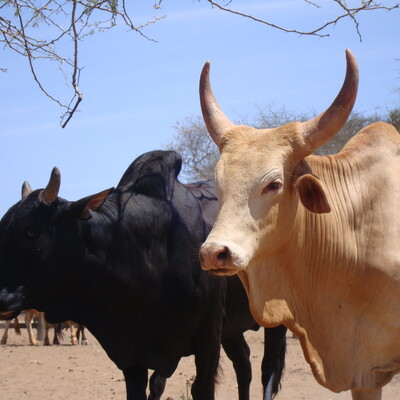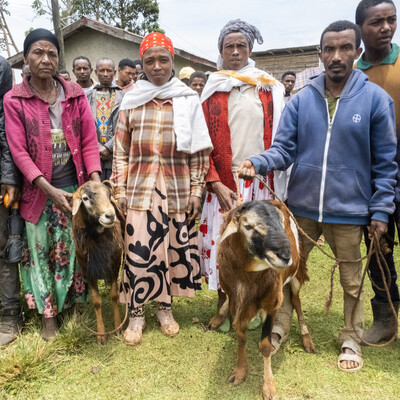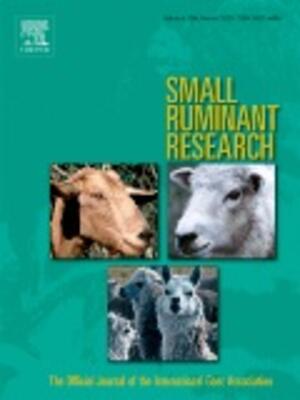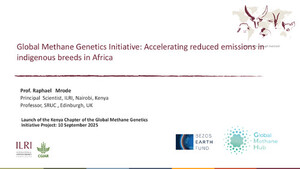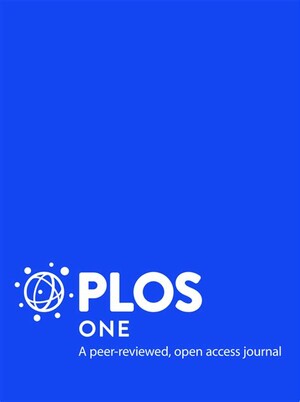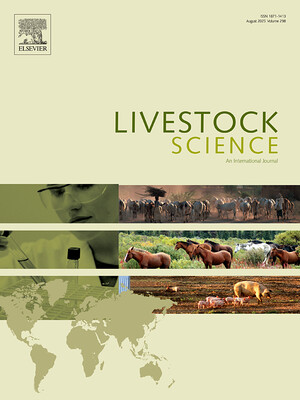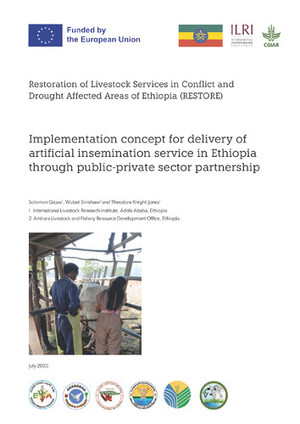
Excursions of a biochemical kind: ILRI hosts CUNY–Regeneron ‘power couple’ working to improve the health of African cattle and COVID-19 patients
Written by Susan MacMillan and Ekta Patel
 ILRI’s cloned Boran bull named ‘Tumaini’ (photo credit: ILRI/Susan MacMillan).
ILRI’s cloned Boran bull named ‘Tumaini’ (photo credit: ILRI/Susan MacMillan).
Part 1
For two months at the start of this year, Jayne Raper, a professor of biological sciences at the City University of New York’s Hunter College (CUNY), in Manhattan, took a sabbatical at the International Livestock Research Institute (ILRI), in Nairobi, Kenya. English-borne Raper leads a long-term research project with ILRI and other international institutions working to develop African cattle resistant to trypanosomiasis—a parasitic disease that has held back agricultural development across much of Africa for millennia. The disease (known as ‘sleeping sickness when it affects people) is transmitted to livestock by the tsetse fly. Raper and her ILRI collaborator, British geneticist Steve Kemp, are investigating genetic means of breeding African cattle able to resist developing this disease.
On this visit, Raper arrived at ILRI’s Nairobi campus in January 2020 with her biochemist husband, Neil Stahl, in tow. Stahl had agreed to conduct his work also from Nairobi for Raper’s two-month sabbatical. That turned out to be serendipitous for ILRI.
It happens that Stahl leads research and development at Regeneron Pharmaceuticals Inc, so while staying on the ILRI campus with his wife, Stahl generously hosted seminars for ILRI scientists on his company’s proprietary Veloci technology, which includes VelocimmuneR, a unique technology that develops, in mice, fully human monoclonal antibodies. ILRI’s vaccine developers and geneticists in particular were fascinated to hear first-hand accounts of how Regeneron, now with 1,700 scientists and eight medicines approved by the US Food and Drug Administration (including ones for severe asthma, rheumatoid arthritis and macular degeneration), had worked in 2015 with the US government to develop a new antibody treatment for the Ebola virus, which in 2019 proved effective in reducing deaths from Ebola in the Democratic Republic of the Congo.
In February of this year, as news began to break about the spread of an infectious flu-like illness originating in east-central China and caused by a newly emerged coronavirus, Stahl also described to ILRI scientists a method Regeneron was testing for treating COVID-19.
Regeneron’s COVID-19 drug cocktail, known as REGN-COV2, consists of two antibodies particularly attractive to the coronavirus. ‘The idea is that the antibodies will bind to the surface of the virus, stopping it from attaching to other healthy cells in the body. One of the antibodies comes from people who have contracted COVID-19 and recovered; the other comes from mice that have been injected with COVID-19’ (CBS news, 9 Oct 2020).
The week before last, while this treatment still under investigation, it was lauded by US President Trump, who was given the antibody cocktail while hospitalized from his infection with the SARS-CoV 2 virus (‘severe acute respiratory syndrome—coronavirus 2). (The drug, not yet on the market, was given to the American president under the FDA’s compassionate use program.) The results of ongoing, randomized, double-blind trials of REGN-COV2 have shown that it reduces ‘viral load and the time to alleviate symptoms in non-hospitalized patients with COVID-19’ when added to ‘usual standard-of-care compared to adding placebo to standard-of-care’ (Regeneron news, 29 Sep 2020). Regeneron has now submitted to the FDA a request for ‘emergency use authorization’ for its REGN-COV2 antibody combination as a treatment for COVID-19.
Part 2
On a fine Nairobi afternoon in Feb 2020, Neil Stahl and Jayne Raper paid a visit to the suburban home of ILRI public awareness staff, where, over wine and pizza, they described their recent work. Both were quick to point out that their research breakthroughs were built on decades of investment and effort in related discovery and development technologies.
Neil Stahl has a light in his eyes, an energy in his body. Relaxed and confident, he has a lively intelligence, one that appears to be searching, hopefully and optimistically, for similar intelligence.
Unusually for many scientists in their high-tech fields, American biotech industry leader Stahl and his British biomedical scientist wife and ILRI collaborator Raper are particularly generous with their time—it is obvious that they like people, and being with people, trading ideas and energy.
On any normal day, their home is full of talk and laughter, of food and drink, with and for their friends, their colleagues, their students. Their students treat these homes as ‘homes away from homes.’
Raper has a telling anecdote about her arriving home at her New York apartment from an overseas trip and, not having her house keys with her, ringing the doorbell. A young person opens the door and politely asks her who she is and what she wants. Raper patiently explains that she is the professor who owns and lives in this apartment. Embarrassment all around as the student, a friend of another student of Raper’s, both of whom have been staying at Raper’s apartment, widens the door open and begins a profuse apology.
That the Raper-Stahls don’t know exactly who is staying in any of their several homes on any particular day is par for the course (for them)—it is what, in research lingo, might be termed an ‘indicator’, of their humanity.
Part 3
What follows is ILRI’s bioscience communications manager, Ekta Patel’s interview of Neil Stahl, conducted a month later, in March 2020.
Ekta Patel: Your company, Regeneron, is working to find treatments for the COVID-19 pandemic; what does this work entail and how far you have come?
Neil Stahl: As we did for Ebola and for MERS (Middle East respiratory syndrome)—the latter being caused by another coronavirus, a cousin of SARS-COV-2, which causes COVID-19—we are making fully human antibodies that neutralize SARS-CoV2. We named these antibodies ‘REGN-COV2’. We screened thousands of SARS-COV-2 binders and selected two monoclonal antibodies, each of which binds to a separate site, or epitope, on the receptor binding domain of the spike protein that sits on the surface of the SARS-COV-2 virus. Both of these monoclonal antibodies neutralize viral activity by preventing the virus from interacting with the ‘binding site’—the receptor protein on cells in our bodies that binds with the virus and allows it to enter and infect our cells. These monoclonal antibodies are highly potent neutralizers of the virus.
To be more specific, we use industry-standard Chinese Hamster Ovary cells to secrete high levels of the monoclonal antibodies in 10,000-litre bioreactors. These can produce >50 kilograms of antibodies in a single run. Although as yet relatively few people can be treated with this method, this treatment can be given much faster and with potentially more broadly effective results than can a vaccine, the effect of antibody treatment may differ in people based on their particular immune responses. We plan to use these monoclonal antibodies in both preventive (prophylaxis) and treatment regimes. We’ve tested use of these antibodies in seamless Phase 1, 2 and 3 trials in the United States, where the antibodies have reduced the viral loads. With our on-going, randomized, double-blinded trials, we’re comparing the effects of adding REGN-COV2 to usual standard-of-care procedures to other procedures that add a placebo to standard-of-care.
How could an antibody treatment by Regeneron help the frontline healthcare workers and what are its side effects, if any?
Stahl: Since the monoclonal antibodies bind to an exogenous target—the spike receptor binding domain of the virus rather than to a human protein—we do not anticipate any side effects during prophylaxis treatment; we should see fairly rapid improvement (possibly in just hours to days) in patients sick with COVID-19. We anticipate that REGN-COV2 will also block or reduce viral shedding in a large number of asymptomatic SARS-CoV2 carriers, if we can identify and treat them.
Moving away from antibody treatments to vaccine development, it appears that the spike protein of the virus is gaining entry to human cells via the host receptor binding site, known as angiotensin-converting enzyme 2 (ACE-2), which plays a role in regulating blood pressure. What challenges do you think this presents for those developing a vaccine against COVID-19?
Stahl: The antibodies bind the viral spike protein and will have no effect on ACE-2 or its function.
In the twenty-first century, we have seen at least three types of deadly pneumonia in humans that are caused by coronaviruses, namely SARS-CoV, MERS-CoV and SARS-CoV-2. Based on your experience, what would the ideal vaccine look like to avoid future zoonotic transmissions of this nature?
Stahl: We can’t easily predict where the next pandemic will come from, but certainly coronaviruses and influenza viruses are prime suspects. There are efforts under way around the world to sequence coronaviruses in bats to provide a catalogue of suspects for potential future outbreaks. A lot of companies are trying to make a ‘universal’ flu vaccine or a universal antibody treatment (including us). The vaccine efforts are going much faster than normal and we can hope that platforms that turn out to be effective against SARS-CoV-2 can be leveraged to stem future coronavirus outbreaks.
Moving away from COVID-19, what are you most proud of and what would you like to be remembered for?
Stahl: So many things. Being able to make cutting-edge and innovative discoveries and turn those into medications that help deal with diseases is huge. For example, Regeneron drugs have been invented that are enabling people to recover from blindness caused by age-related macular degeneration. I was also involved in developing the Ebola drug and now we are able to work on a drug for the new coronavirus. I am proud to be part of one of the most innovative organizations in the world. I get to work with great scientists within an organizational culture of working together to develop cutting-edge technologies. I would like to be remembered as someone who cared about other people and one who gives individual attention to those around me.
How do you attract people to work at Regeneron and what do you look for in such people?
Stahl: Our company has a great postdoctoral program. Our senior scientists believe in science education and perpetuating the Regeneron culture within the next generation. We have many initiatives for determining what individuals are actually capable of and if they are able to apply the type of thinking we have applied to our research. We’re always on the lookout for the best available scientific ‘athletes’. We seek broad thinkers who are rigorous and good communicators, those who can function in a brainstorming room and can collaborate in a group setting. We’re also looking for skills that are aligned with our programs and initiatives. But the most important qualities to us are rigorous thinking and ability to innovate.
Can livestock monoclonal antibodies make superb drugs for livestock disease?
Stahl: Yes! Antibodies make fantastic drugs. We work with Zoetis, which uses our VelocImmuneR antibody technology to develop monoclonal antibodies for species-specific use in companion and livestock animals. The challenge for this kind of work for animals would be to ensure that the animals don’t develop immune responses against the drug that would render it inactive. We might need to make ‘chimeric’ antibodies, made up of domains derived from the target species, to provide better tolerability and lower immunogenicity in target animal breeds.
About Regeneron
Visit the Regeneron website.
Read Regeneron’s latest press release: Regeneron’s REGN-COV2 antibody cocktail reduced viral levels and improved symptoms in non-hospitalized COVID-19 patients, 29 Sep 2020.
About Neil Stahl
Neil Stahl has a PhD in biochemistry from Brandeis University. He joined Regeneron, which started in 1988, in 1991, where he has served as a vice president in various capacities since 1997. Stahl has been executive vice president for research and development at the company since 2015. Before that, he served (since January 2007) as senior vice president for research and development and before that (since January 2001) as senior vice president for preclinical development and biomolecular sciences.
About Jayne Raper
Jayne Raper is professor in the department of biological sciences at Hunter College, City University of New York (CUNY), where she has been on staff since 2011. She is currently managing a project that ILRI is participating in. Funded by the US National Science Foundation and Bill & Melinda Gates Foundation, the project is working to generate transgenic cows that will be resistant to all forms of a lethal parasite, the African trypanosome, which is transmitted to cattle by the bit of a tsetse fly as it takes a bloodmeal. Before joining CUNY, Raper was associate professor in the department of microbiology at New York University School of Medicine. She conducted her postdoctoral research at the ICP, in Brussels, Belgium, and Johns Hopkins School of Medicine, in the USA. Born and raised in the UK, she earned a PhD in biochemistry from the University of Cambridge.
Watch and listen as Raper describes her trypanosomiasis research, and why it matters:
Re-engineering cattle to fight disease, TEDx CUNY talk, 14 Mar 2016.
I’ve got the gene for you! The science behind making parasite-resistant cattle, Cornell Alliance for Science, 14 Sep 2016.
Update of 21 Oct 2020
‘. . . This month the U.S. Food and Drug Administration granted formal approval to an antibody cocktail from the pharmaceutical company Regeneron that’s been shown to reduce an Ebola patient’s chances of dying dramatically. The treatment, which has been known as REGN-EB3, is now being marketed under the brand name Inmazeb. (Regeneron is also making another antibody cocktail to treat COVID-19. That medicine got a lot of attention when it was given to President Trump. These antibody cocktails attack the Ebola and SARS-CoV-2 viruses in similar ways—using multiple antibodies to block the replication of the virus—but are completely different medications.) . . . From: Ebola never went away. but now there’s a drug to treat it, by Jason Beaubien, NPR ‘Goats and Soda’, 20 Oct 2020






